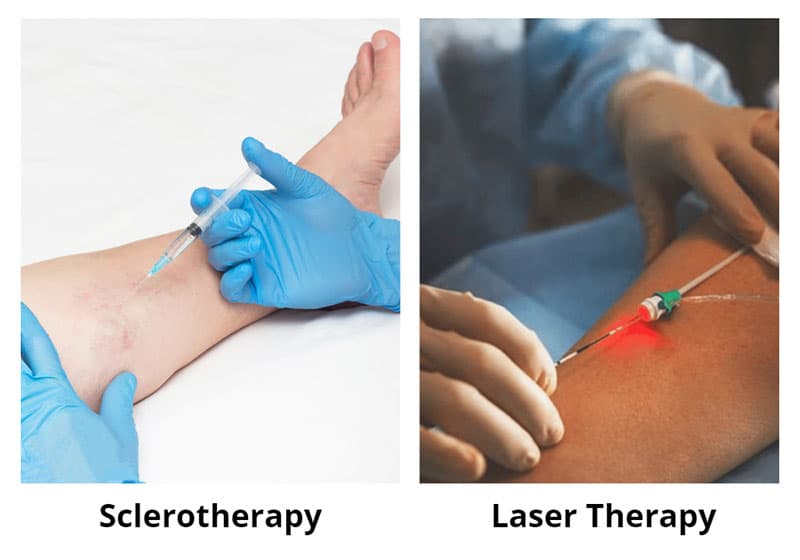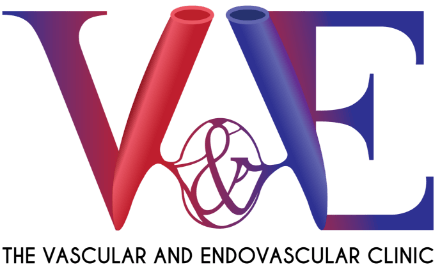Spider and thread veins are small, dilated blood vessels that appear near the surface of the skin. They are usually red, blue, or purple in color and can appear in clusters or as single lines.
Spider veins are smaller and resemble spider webs, while thread veins are longer and thinner. They most commonly appear on the legs and face but can occur anywhere on the body. They are caused by a variety of factors, including genetics, age, hormonal changes, pregnancy, obesity, and prolonged standing or sitting. While they are not harmful, they can be unsightly and may cause discomfort or itching in some cases.
Spider and thread veins are not dangerous and are generally considered a cosmetic concern rather than a medical issue. However, if they appear suddenly or in large numbers, it is advisable to consult a vascular surgeon to rule out any underlying medical conditions that may be causing them. Additionally, if they are accompanied by symptoms such as pain, swelling, or bleeding, it is important to seek medical attention.

The best treatment for spider veins depends on the individual. Common treatments include sclerotherapy, laser therapy, and radiofrequency ablation. Sclerotherapy involves injecting a solution into the veins to collapse them. Laser therapy uses light energy to target the small veins. Radiofrequency ablation involves heating the veins to collapse them. Depending on the severity of the condition, more than one type of treatment may be necessary. In some cases, lifestyle changes such as weight loss, exercise, and elevating the legs can also help reduce the appearance of spider veins. Laser therapy is generally considered more effective than sclerotherapy for treating spider veins, as it can be more precise and cause less damage to the surrounding tissue. However, sclerotherapy may be more cost-effective and can be used to treat larger areas. Ultimately, it is important to discuss the best treatment option for your individual needs with your vascular surgeon.
Recurrence of spider veins is possible after treatment, but it varies from person to person. Factors that may contribute to recurrence include genetics, hormonal changes, pregnancy, and lifestyle choices such as prolonged sitting or standing. In some cases, additional treatments may be necessary to address new spider veins that develop over time. However, following healthy lifestyle habits, such as regular exercise and avoiding prolonged sitting or standing, can help prevent the development of new spider veins. It is important to discuss the risk of recurrence with your vascular surgeon and to follow their recommended post-treatment care instructions.
Precautions to be aware of after treatment of spider veins:
- Wear Compression Stockings: After treatment, it is important to wear compression stockings to help reduce swelling and discomfort. Compression stockings should be worn for up to 2 weeks after treatment.
- Avoid Sun Exposure: It is important to avoid sun exposure as much as possible for several weeks after treatment. This will help reduce the chance of developing post-procedure complications.
- Avoid Exercise: It is important to avoid strenuous exercise or activities that may cause excessive pressure on the treated area for at least a week after treatment. This will help prevent further irritation or damage to the treated veins.
- Avoid Hot Tub Use: Hot tubs should be avoided for at least a week after treatment. The hot water and pressure can cause further damage to the treated veins.
If you’re bothered by the appearance and discomfort of spider and thread veins, it is a good idea to see a vascular surgeon. They will work with you to determine if there are any underlying health issues and suggest treatment options that are best suited for you.









